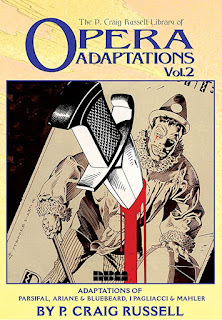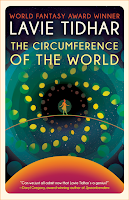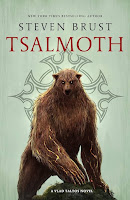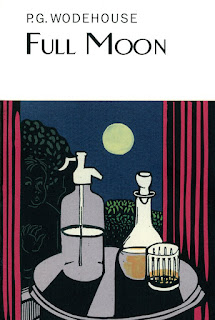I don't take notes when I read these days. I did that for sixteen years - longer, I guess, since I was reviewing a bit for some other outlets after my editorial career crashed - but I stopped quite some time ago.
Well, not usually. I did write down some slashing, unhappy prompts about this book. I didn't want to forget how much I was hating it, and the specific things I wanted to complain about.
I'm not as negative now that I finished it. I still don't like it: the memory of my teeth-grinding is still there, and I'll get to the points from my notes before long. But it ends well, and wraps up its concerns in a literarily smart way, which I have to respect.
All in all, I reacted to To Rise Again at a Decent Hour like a stereotypical mom, after some ludicrous display by a child I expect better things from. I'm not mad. I'm just very, very disappointed.
This was Joshua Ferris's third novel, published in 2014. I loved his first book, the workplace seriocomic oral history Then We Came to the End, and was less impressed by the more conventional literariness of his second book, The Unnnamed, in which a successful middle-aged white man has a weird problem.
To Rise is also a book in which a successful middle-aged white man has a weird problem, and my concerns with it take those from Unnamed and add multiple layers on top.
First, to define terms. In a genre novel, the main character is active, and drives the plot, usually finding resolutions to the problems therein. In a literary novel, it's much more common that the main character is powerless, confused, incompetent, broken or just stuck: activity generally does not lead to anything in a literary novel. You know you're reading a literary novel when every action the main character takes only makes things worse.
(Not just for a while. That happens a lot in genre as well. Every single action the whole book. Only introspection can save a literary novel protagonist, nothing in the world of samsara.)
Also, this is both an alternate history and a secret history. The alternate part is that apparently the DMCA did not pass in 1998, so our hero has no recourse when people publish libels about him online. This is a world in which the DMCA takedown does not exist.
The secret history is more nuanced, and closer to the core of the book. And it could very likely be a lie and a scam: in a reasonable book based on the real world, it would obviously be a lie and a scam. But in literary fiction, feelings and connections and emotions are often more important and more central than plausibility and factuality.
Perhaps I should explain. Paul O'Rourke, whose voluminous interior narrative makes up the vast majority of the book despite his utter lack of self-awareness and the tedious blandness of that narrative, is a successful dentist in NYC. He runs a small practice: himself, two assistants (only one of which seems to be a hygienist) and an office manager. He is thirty-something, with no real family: he was an only child and his father committed suicide in his youth, and his mother's continued existence is not even mentioned until near the end of the novel.
Paul is a Red Sox fan, the dullest kind of anti-Christian atheist [1], an easily distracted and short-tempered man of what seems to be slightly less than normal intelligence, and a tangled ball of unacknowledged survivor guilt: those are the touchstones of his personality, to which the narrative will return over and over again in page-long paragraphs from his thin and annoying POV.
He's not actively unpleasant, not a boor or a bigot. He's just the kind of guy who runs his mouth off - or, to be kinder, whose head never stops running through the same few ideas - until you just want to get away from him and never hear a single word he speaks ever again.
Here's one of my notes:
he not only doesn't understand his own actions, he's not even self-aware enough to realize he's doing things he doesn't understand. he's like a raw brainstem bouncing through life, pretending to have a theory of mind
So we meet this guy and, if you're me, quickly find him dull and unpleasant. But then the plot starts, which gives us additional reasons to be annoyed.
For no obvious reason, Paul has almost no digital presence. No website for his business, no social media. Oh, he's on Red Sox boards with one of those weird camelcase-and-numbers ID, but there's nothing that says "Paul O'Rourke, New York dentist."
One day, someone creates a site for his practice. And, soon afterward, starts creating accounts in Paul's name other places, pretending to be him. Paul sends angry emails to the website developer, and eventually gets unsatisfying, pseudo-philosophical thoughts from someone associated with it. His requests to stop go nowhere. He consults with a lawyer, who says there's nothing they can do.
The social accounts and website are updated regularly, and quickly start spouting a conspiracy-theory secret history, about the unknown Ulm people, who are unsubtly like the Jews, but more so. The Ulm are the descendants of the Amalekites, the Jews' first great enemies coming out of the Sinai, and so are even more oppressed, to the point of being entirely forgotten and never recorded in history anywhere, a scattered people found everywhere in the world but with no community or traditions...except this one mysterious guy, behind the website, claims to have their religious book, which no one else in the entire world has ever heard of.
This, bluntly, is so obviously a scam that the reader's already low opinion of Paul is lowered significantly when he takes it the slightest bit seriously. The idea of an Ulm people, tracked by vague genealogy and even vaguer genetic tests, is utter bullshit. Even if it has a germ of truth, which I don't believe, it would be at most a lineage, the rough equivalent of those factoids like "64% of people in Central Asia can trace their ancestry back to Genghis Khan." It's not a people.
Paul, on the other hand, is an obsessive who can't get out of his own way - did I mention he's a literary novel protagonist? I may be repeating myself - so he's all-in on this, badly arguing his second-hand bullshit with the people in his life and alienating them all even more so than his repellent base personality already does. In the end, it leads to a crisis, as it must in a literary novel.
OK. Ferris is a solid writer. I don't like most of what he's doing here, and I believe vanishingly little of it. But he's good at putting words in order, though he's not flashy about it. In fact, a little more flash might have helped: this struck me as a book that needed the unsettling rigor of a mid-career DeLillo rather than the goofy stream-of-consciousness Ferris gives Paul.
I can't recommend that anyone read this book. I'm not happy that I read this book. I wish Ferris would stop writing about middle-aged dinks who do bizarre things. But the world does not conform to my desires. (I know this; Paul O'Rourke does not, he's also deeply superstitious in the way of tedious sportsball fans and his atheism is suspiciously close to the old "God never helped me" end of the spectrum. This is the very last thing I will complain about; I will now shut up about this disappointing book.)
[1] Literary atheists disbelieve in a specific god, very strongly and usually with a visceral hate; atheists in the real world are more likely to say to a theist "you know how much time you spend thinking about whether Zeus is real? Exactly."




















